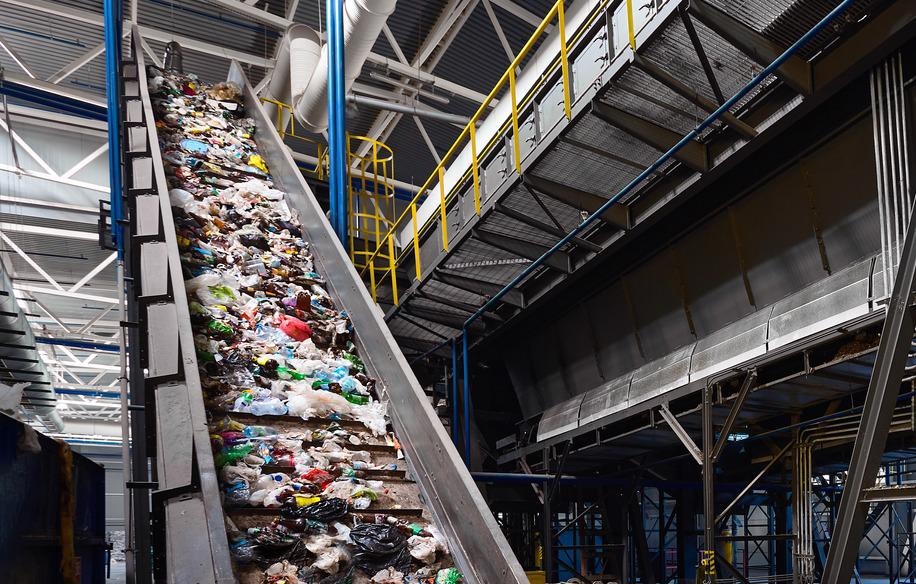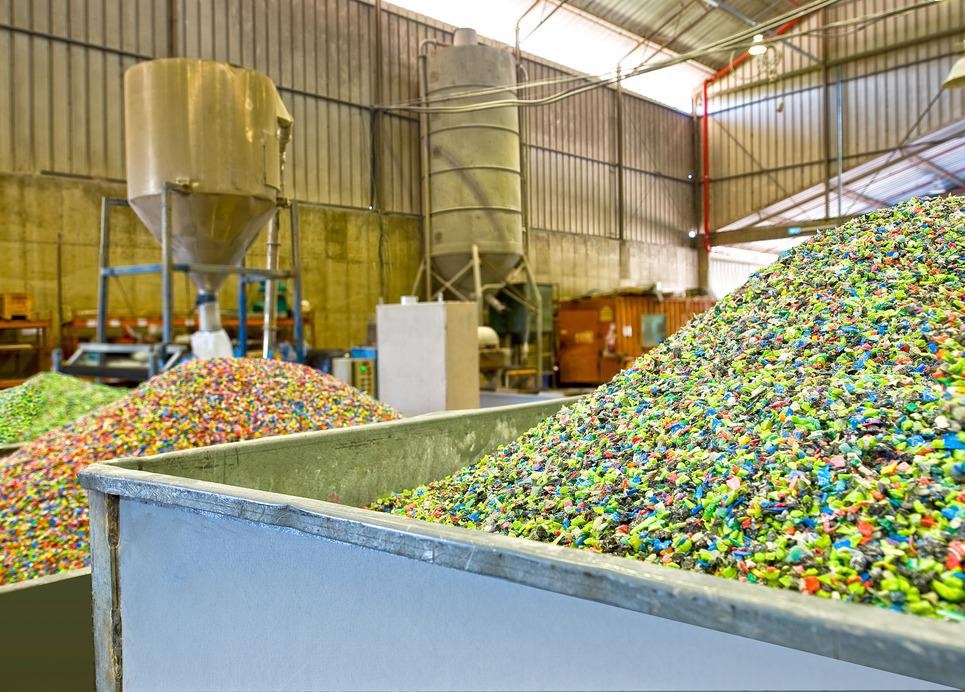Supply chain sustainability has become a priority for many industries in the past two decades as fossil-based natural resources become depleted and carbon emissions rise. A newly-formed collaboration between the UK-based companies Circulor, Recycling Technologies, and the French sustainable energy giant TotalEnergies aims to set up a new standard for sustainability and transparency of recycled plastic waste. Circulor's blockchain-enabled traceability solution provides a fully traceable and up-to-date record of recycled materials, from waste sourcing to the final upcycled products.

Image Credit: RYosha/Shutterstock.com
Polymers are one of the most ubiquitous materials used in modern society. Their outstanding durability and low manufacturing cost provide unmatched benefits in many industrial sectors compared to substitute materials. Global plastic production soared from a few million tons to over 400 million tons in the last 60 years, and by 2050 it is expected to surpass one billion.
Rising Pressure to Use Sustainably Sourced Polymers
At present, the plastic manufacturing industry is recycling less than 20% of the global plastic waste. In particular, around 40% of packaging plastic is landfilled worldwide, with another 32% leaked into the ocean and not reused.
Consumer and non-governmental organization (NGO) campaigns alongside governmental incentives and legislation put pressure on manufacturers to use sustainably sourced plastics in their supply chains. New regulations in the UK aim to reduce plastic packaging waste by imposing a tax (at a rate of £200 per ton) on new packaging materials with less than 30% recycled plastic waste reused in the manufacturing process.
The EU has already introduced a charge of 80 cents per kilogram of non-recycled plastic packaging waste. As part of the Green Deal, the EU aims to recycle and reuse 50% of plastic packaging by 2025.
Other industrial sectors like construction, consumer products, and automotive manufacturing also have ambitious goals to recycle this waste and use recycled content in high-value products.
Making Complex Industrial Supply Chains More Transparent
The forthcoming regulations emphasize the need for more accurate information and traceability within the supply chain and life cycle of plastic products.
Currently, certification relies on the assessment and verification of recycled plastic material throughout each step of the value chain. The aim is to provide transparent information about the source of the recycled material (pre-consumer or post-consumer) that will establish consumer trust in the environmental sustainability of the final product.
However, various recycled content audit schemes adopt different criteria and standards when tracing recycled plastic waste, such as recording location specifics at varying time stamps. The complexity of industrial supply chains adds further complication to this issue. A lack of standardization across industries can often raise concerns about trust, privacy, and consistency.
A partnership between the UK-based companies Circulor and Recycling Technologies and the French sustainable energy giant TotalEnergies intends to provide a tamper-proof end-to-end digital traceability of recycled materials. The collaborative project, named TrackCycle, aims to track hard-to-recycle plastics and guarantee recycled polymer content in newly manufactured materials by employing blockchain-enabled technology.
Blockchain-Enabled Traceability Solution Verifies Recycling Claims
Circulor, a provider of digital traceability solutions, has developed a blockchain-based platform that monitors the source and quality of raw materials in industrial supply chains.
Blockchain technology, initially developed in association with bitcoin and other cryptocurrencies, has emerged as a valuable tool for supply chain mapping and raw materials tracing. It provides tamper-proof handling of permissions, dates, and data access. Parties can also exchange information without establishing a high level of trust as the technology inherently handles data verification for them.
Circulor’s blockchain-enabled traceability solution employs the Hyperledger Fabric-based Oracle Blockchain Platform and creates a digital identity for a physical commodity stored in a distributed ledger. The platform permits tracking of materials from their source, through the manufacturing process, to the final product while assessing the existence of abnormalities or fraudulent activity.
The company has already deployed its traceability solution for Volvo Cars and Polestar EVs to track metal feedstock used in their battery units.

Image Credit: ImageStock/Shutterstock.com
Traceable Chemical Recycling of Hard-to-Recycle Plastics
Joining forces with Recycling Technologies and TotalEnergies, Circulor expects to achieve more reliable management of plastic waste on land, thus preventing ocean contamination.
Recycling Technologies is an engineering and manufacturing company based in Swindon, UK, developing innovative chemical recycling technologies to convert hard-to-recycle plastic waste into liquid feedstock for new polymer production.
Unlike the conventional mechanical recycling process (granulating), the company's proprietary RT7000 recycling plant uses a pyrolytic process (heating in the absence of oxygen) that breaks down the long polymer chains into a liquid feedstock branded Plaxx®. Particularly suited to treat hard-to-recycle plastics, this process can be applied to polystyrene containers, flexible packaging films, multi-layered and laminated packaging such as crisp packets, or complex and contaminated plastic waste.
As part of the TrackCycle project, TotalEnergies contributes its industrial expertise in the manufacturing of recycled polymers. The company's ambition is to improve the traceability of its feedstock from post-consumer plastic wastes and increase the share of recycled and renewable polymers to 30% of the total output by 2030.
Building Resilient Circular Economy
Circulor's traceability solution will permit Recycling Technologies and TotalEnergies to track the recycled plastic waste and confirm compliance with predefined manufacturing parameters, such as elapsed time, mass balance calculations, responsible sourcing standards, or energy usage.
The industrial partnership is supported by the UK government's innovation agency Innovate UK., with expectations that the novel technology will ensure transparency over the origin and the quality of materials entering and exiting recycling and manufacturing facilities.
The ultimate goal of the TrackCycle project is to link plastic waste suppliers, plastic recyclers, polymer manufacturers, and consumer goods companies together into a closed-loop plastic waste recycling ecosystem.
References and Further Reading
Moore, D., (2021) Blockchain traceability solution for hard-to-recycle plastics gets funding. [online] Available at: https://www.circularonline.co.uk/news/blockchain-traceability-solution-for-hard-to-recycle-plastics-gets-funding [Accessed 26th August 2021].
plasticstoday.com. (2021) Blockchain Traceability for Recycled Plastic Waste Revealed. [online] Available at: https://www.plasticstoday.com/advanced-recycling/blockchain-traceability-recycled-plastic-waste-revealed [Accessed 26th August 2021].
Circulor. (2021) TotalEnergies, Circulor, Innovate UK and Recycling Technologies partner to develop blockchain-enabled traceability solution for recycled plastic waste. [Online] Available at: https://www.circulor.com/total-press-release [Accessed on 26 August 2021].
Centobelli, P., Cerchione, R., Vecchio, P., Oropallo, E. and Secundo, G., (2021) Blockchain technology for bridging trust, traceability and transparency in circular supply chain. Information & Management, p.103508. Available at: https://doi.org/10.1016/j.im.2021.103508 [Accessed on 26 August 2021].
Khadke, S. et al. (2021) Efficient Plastic Recycling and Remolding Circular Economy Using the Technology of Trust–Blockchain. Sustainability, 13(16), p.9142. Available at: https://doi.org/10.3390/su13169142 [Accessed on 26 August 2021].
Ledger Insights - enterprise blockchain. (2021) TotalEnergies partners with Circulor for blockchain plastic traceability - Ledger Insights - enterprise blockchain. [online] Available at: https://www.ledgerinsights.com/totalenergies-partners-with-circulor-for-blockchain-plastic-traceability/ [Accessed 1 September 2021].
Disclaimer: The views expressed here are those of the author expressed in their private capacity and do not necessarily represent the views of AZoM.com Limited T/A AZoNetwork the owner and operator of this website. This disclaimer forms part of the Terms and conditions of use of this website.